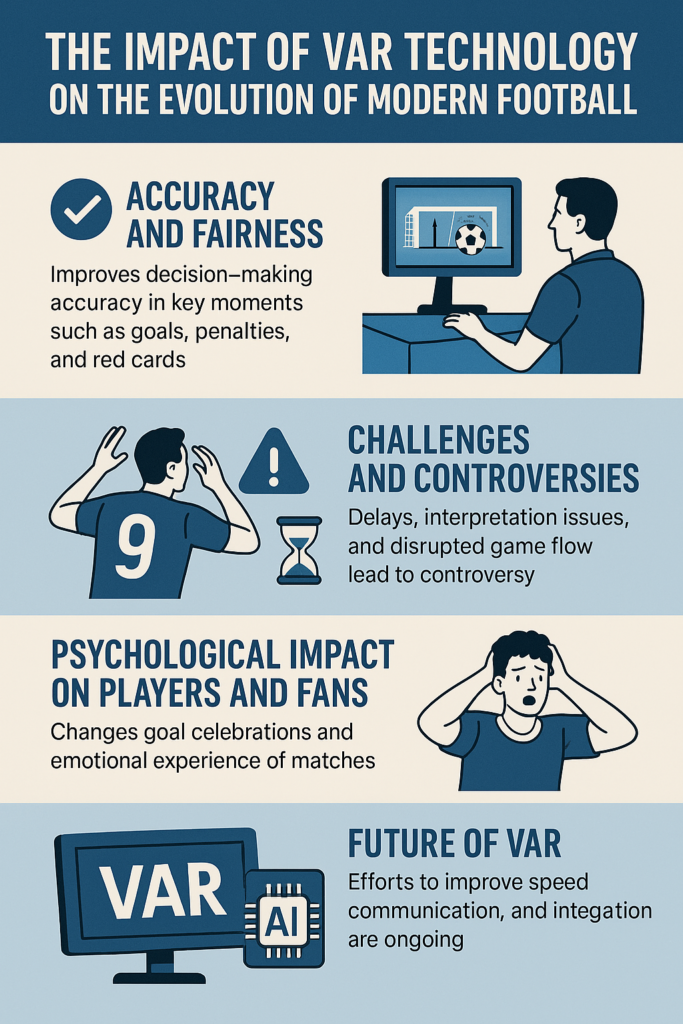
Video Assistant Referee (VAR) technology has significantly transformed the world of football since its official introduction in major leagues and international competitions. Designed to assist referees in making more accurate decisions, VAR has become one of the most debated innovations in modern football.
Accuracy and Fairness
One of the main advantages of VAR is the improvement in decision-making accuracy. It helps referees review key moments such as goals, penalties, red cards, and cases of mistaken identity. This has led to a fairer outcome in many matches, where controversial decisions could have previously changed the fate of teams unfairly.
Challenges and Controversies
Despite its benefits, VAR has also faced criticism. Delays in decision-making can disrupt the flow of the game and frustrate fans and players alike. Moreover, some decisions, especially involving handballs or offside calls, are still subject to interpretation, leading to controversy even after video review.
Psychological Impact on Players and Fans
VAR has also changed the way players celebrate goals. Now, every goal is followed by a moment of uncertainty as everyone waits for the VAR confirmation. This has affected the emotional experience of the game, both for players and fans in the stadium.
Future of VAR
As technology continues to evolve, so will VAR. Efforts are being made to improve its speed and communication with fans, and to minimize disruptions to the game. In the coming years, we can expect VAR to become more efficient, possibly with AI support, making the game even more fair and enjoyable.
Conclusion
VAR has brought significant change to modern football. While it has not been perfect, its role in improving fairness and reducing major errors is undeniable. With continued improvements, VAR is likely to become an even more integral part of the beautiful game.